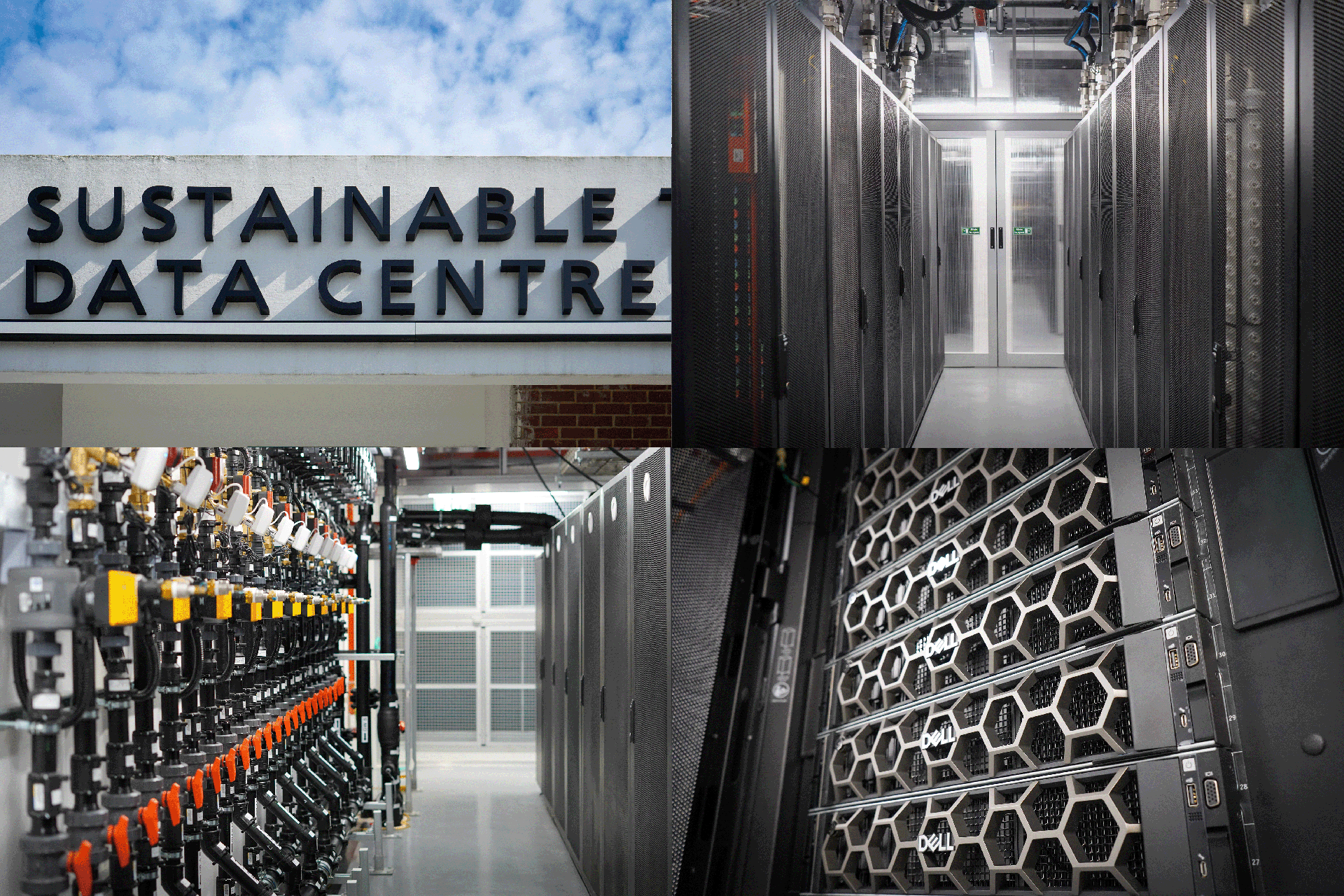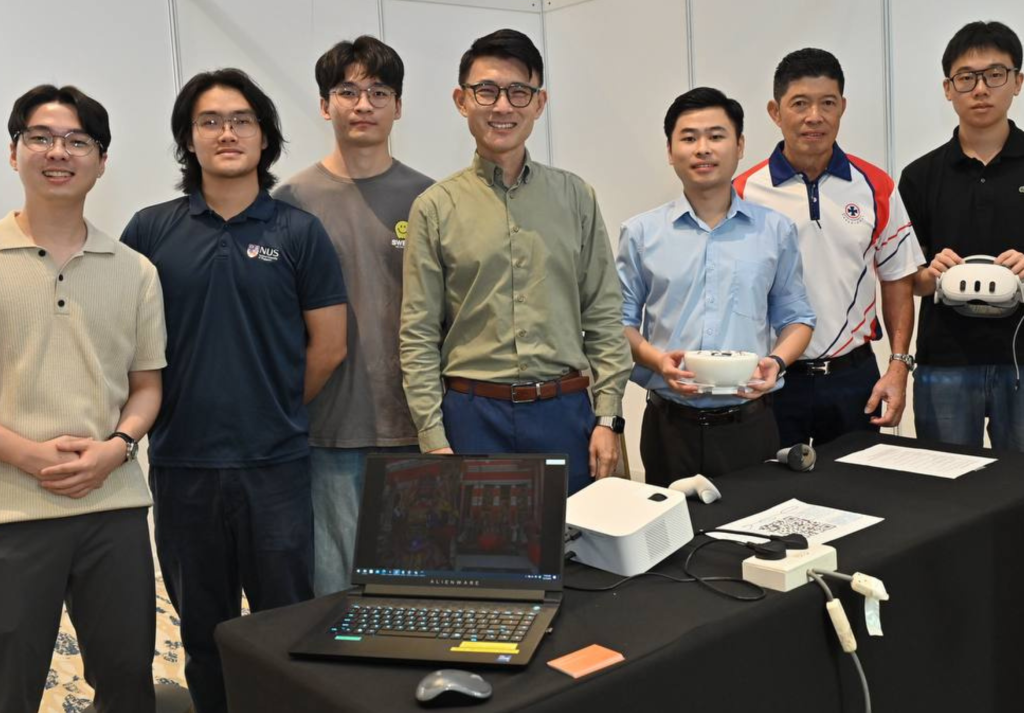
A new testbed facility designed to fast-track the testing and adoption of sustainable cooling technologies for data centres in tropical climates has been officially launched at NUS.
The Sustainable Tropical Data Centre Testbed (STDCT), hosted on the NUS campus, was launched at a ceremony on November 29 by Singapore Minister of State for Trade and Industry Mr Alvin Tan, in the presence of guests from the research community and industry.
Designed as a full-scale living laboratory, the STDCT is at the centre of a national-level research programme jointly-run by NUS and Nanyang Technological University, Singapore, together with key stakeholders in Singapore’s data centre industry. The testbed is the world’s first facility focused on developing innovative cooling solutions and setting new sustainability standards for data centres in tropical climates.
The initiative is funded by the National Research Foundation (NRF) in line with the Research, Innovation and Enterprise (RIE) 2025 plan to position Singapore as a leading centre for green services and solutions to transform sustainable industries.
Power-hungry data centres
Data centres are the backbone of the digital economy, but they are power-hungry facilities. As computing power has increased and demand for data storage soars, data centres have become a major global consumer of electricity. On average, about 40 per cent of a data centre’s energy consumption goes into powering its cooling and ventilation systems.
The challenge is especially acute in hot and humid climates such as Singapore, where data centres account for seven per-cent of total electricity consumption - a number expected to rise to 12 per-cent by the end of the decade.
In his keynote address at the STDCT launch ceremony, Minister Tan said data centre infrastructure is critical to the future of the digital technology economy, a key engine of Singapore’s growth. “We cannot do without them, but we need to make them greener,” he said.
As global demand for data centre capacity continues to increase, the minister noted that "Singapore is playing a crucial role in the design and setting new standards in sustainable data centre practices."
STDCT Programme Director, Associate Professor Lee Poh Seng (Mechanical Engineering), said efficient cooling technologies pioneered at the new testbed would be key to reducing data centre power consumption, future operating costs and therefore lowering their environmental impact.
“The new testbed facility supports five research projects under the STDCT programme,” Assoc Prof Lee said. “These projects involve conducting holistic assessments to identify opportunities to raise the recommended temperature of conventional data centres, identifying the ‘sweet spots’ for sustainable cooling solutions, and integrating these technologies for optimal performance.”

In June this year, Singapore’s Infcomm Media Development Authority (IMDA) announced a sustainability standard for new data centres to enable their operation at higher temperature settings while optimising energy efficiency.
Singapore had previously had a three-year moratorium on the construction of new data centres amid concerns over their energy demand and resulting impact on the climate.
Professor Liu Bin, NUS Deputy President (Research and Technology), said the STDCT was “an unprecedented initiative that aligns seamlessly with Singapore’s Green Plan 2030, and reinforces the nation’s and NUS’ commitment to sustainability.”
Noting that the data centre market in Singapore is set to exceed one gigawatt in 202, she added: “The opening of the testbed facility today will accelerate the creation and translation of game-changing data centre cooling technologies that are well-suited for tropical urban settings like Singapore, further advancing the sustainability efforts of the sector locally and beyond.”
Mr Ni De En, Director, Urban Solutions & Sustainability, National Research Foundation, said the STDCT would be a key driver of innovation in cooling technologies. “Such industry R&D platforms accelerate the translation and commercialisation of research, in support of our climate goals,” he said.

Programme partners
To date, the STDCT has attracted more than S$30 million in investments for the facility and five research projects led by scientists from NUS and NTU in collaboration with industry partners. STDCT has also received support from the Infocomm Media Development Authority.
The STDCT programme is supported by 20 industry partners who have contributed state-of-the-art technologies and are actively engaged in technology co-development.
The industry partners are (in alphabetical order): +GF+, Ascenix, CBRE, CoolestDC, Danfoss, Dell, Digital Reality, Eaton, GSM, Intel, Keppel, M&C Engineering, Meta, NalcoWater, Nvent, Red Dot, Schneider Electric, Shell, Sygna, Vertiv.
| About the STDCT
Occupying a repurposed building on the NUS campus, the STDCT has been designed as a flexible, full-scale facility combining cutting-edge research and real-world application. With a floor area of 770 m2, the testbed enables researchers to experiment and validate innovative cooling ideas, and serves as a de-risking platform for data companies to test and optimise new technologies in a realistic, tropical setting. The testbed is a key infrastructure in support of a comprehensive research programme initiated in June 2021 developing cooling solutions for tropical data centres. Programme goals The STDCT programme aims to demonstrate the following outcomes in a tropical setting:
A white paper will also be developed, expected to be released in late 2024, to provide recommendations on optimum data centre design and operation. Research projects The STDCT will support five research projects led by faculty from NUS and NTU. Three projects led by NUS researchers will focus on the development of cutting-edge cooling technologies:
In tandem, researchers from NTU are leading two projects:
|





